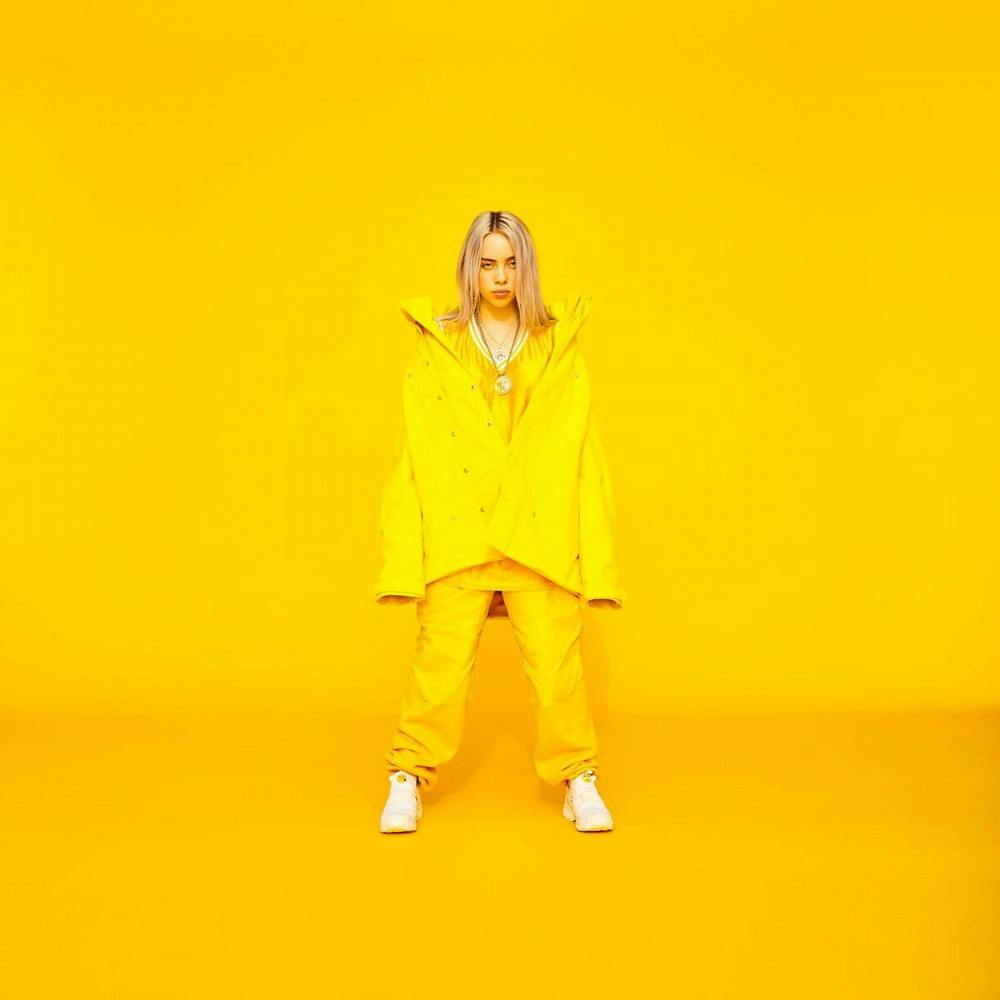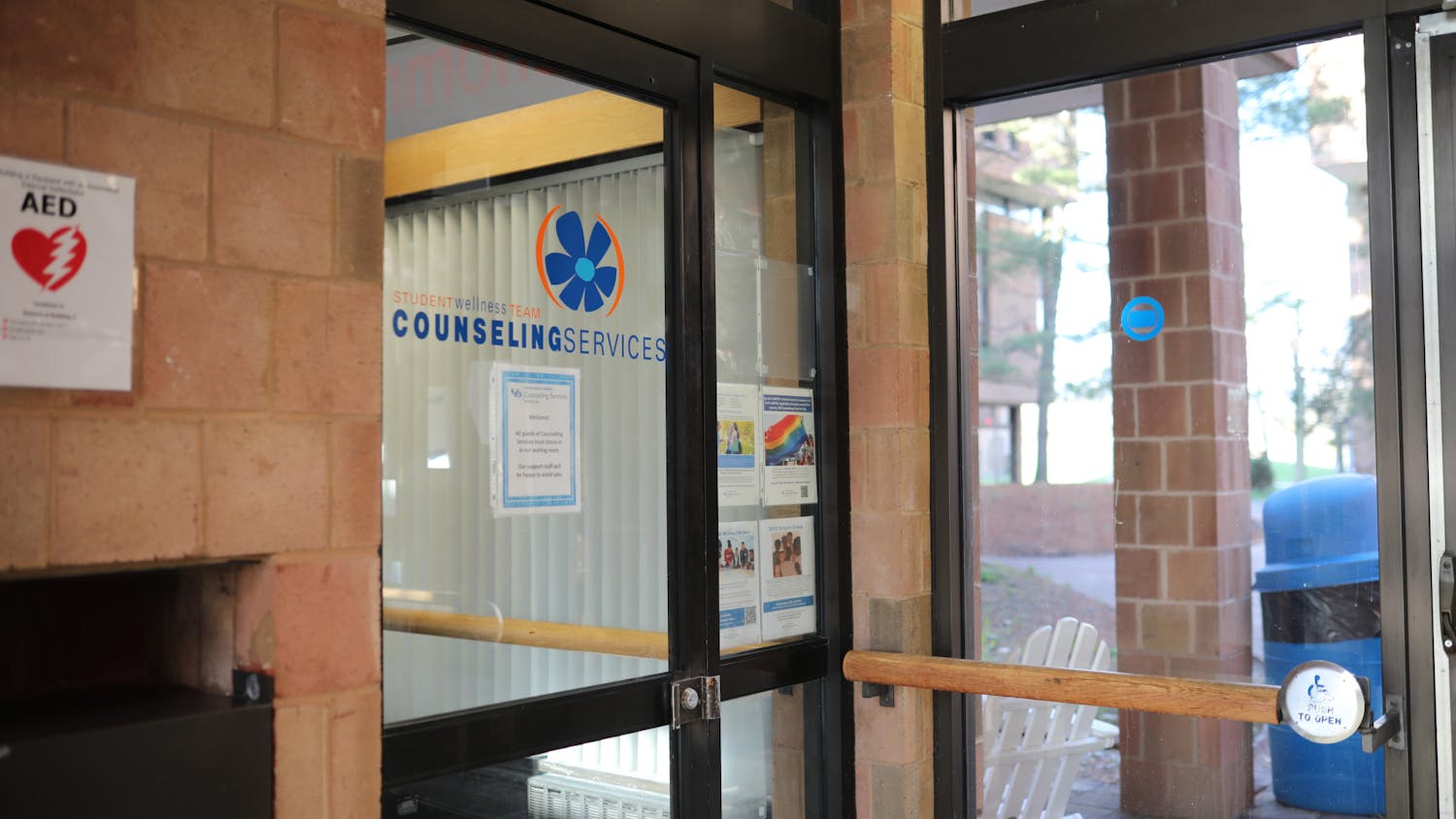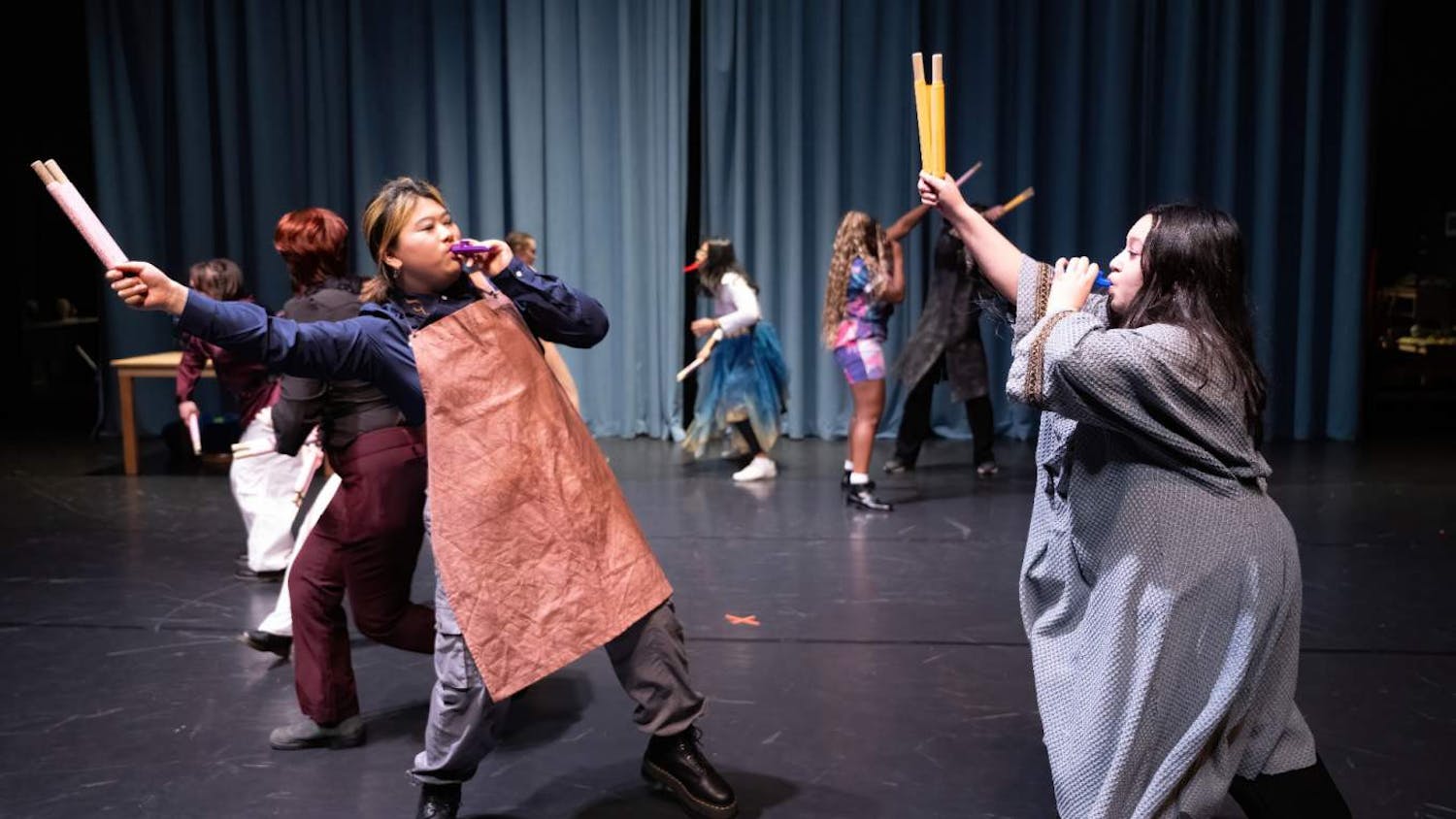Billie Eilish is redefining what it means to be a pop star.
Her unique fashion sense, her captivating personality, her love of f-bombs and most of all, her infectious and honest music sets her apart from industry peers. Eilish isn’t just creating music––she’s creating authenticity. And she’s doing a fine job.
She completely sold out her headlining tour, her debut EP “Don’t Smile at Me” has surpassed 363 million streams worldwide, according to her publicist. And her debut single, “Ocean Eyes” just went RIAA Gold. Eilish has accomplished all of this at 16-years-old with a record she made in her brother’s bedroom.
Eilish, who will be performing at Toronto’s Mod Club on March 28, recently spoke with The Spectrum about seeing the world at a young age, the normalization of homemade music and her upcoming debut album.
The teen is already inspiring fans across the world to be themselves. Fans and critics alike are anticipating a bright future for the angel-voiced artist.
Q: You and your brother Finneas worked on “Don’t Smile at Me” together and made magic. What’s the earliest memory you have with your brother where you realized you two had a musical connection?
A: I’ve always sung [and] he’s always sung. He started writing when he was 11 or 12, and I started writing when I was 11 or 12. Since we’re four years apart that was obviously also four years apart. After I started writing–– and he’d been writing forever and was a genius at it––we were kind of just like ‘why aren’t we doing this together? We live three feet away from each other so we could just do it as one.’ And we sort of did and there was no expectation, it was just totally what we wanted to do because we could do it so we just did it for us. We had no expectations, no hopes. It just kind of was what we wanted so we did it.
Q: You and your brother created these tracks outside of a studio in your own bedroom. There’s guys out there like Brockhampton who are doing the same. Do you think you’re challenging the music industry in any way?
A: I just think it’s the realest –– for me at least. I just think so many things and people and albums and songs and everything that has to do with music in the industry is so artificial. It’s so artificially made and there’s some songs where it’s like ‘who wrote this?’ and you look it up and 20 people are credited with writing it and 8 people produced it and whatever. Dude, I just think some people, and I’m not naming anybody or thinking of any specific person about this, but people in general; the people who get famous for the music aren’t even the people making the music. If you can write a song and sing you should f-----g be the person getting credit for it.
Q: “Don’t Smile at Me” has 326 million streams across platforms and you just received your first RIAA Gold plaque for “Ocean Eyes.” In the past you’ve said you got your start just writing down how you feel, authentically. How does it feel knowing that your feelings have garnered this much attention?
A: Dude, it’s so f-----g weird. Like, it’s so weird to think about and do over and over again. I can just think of something in my head that nobody else can hear or know or anything. I can write it down on a little piece of paper in my room and just writing this on a little tiny page in the middle of a house in Hyland Park can become art and sometimes have thousands of people listen to it and relate to it and hear it and feel it which is just f-----g insane to me. Like what? I don’t even know.
Q: You’re beginning to jump into the fashion industry and you have a new collection with Joyrich. But from the looks of it, fashion has always been your thing. Who are your inspirations in the field?
A: Thank you, first of all. The Joyrich collab is f-----g so tight because I’ve been a fan of that band forever now. They started a long time ago and they’re just now getting big, which is f-----g crazy because they’re amazing. I met the designer and he’s just such a genius. I feel like we think the same things about a lot of things and get a lot of our ideas from the same types of inspirations. We just talked and we made up all this stuff and created stuff.
My biggest inspirations have been–– I don’t know, I really like Bloody Osiris, and there’s this other dude. I don’t even know what his name is but his username is like “Itsmurda555” or some s--t. He’s really tight. I’ve always loved Tyler, The Creator. He’s such a gem as a human and as an artist in general. I respect him so much. It’s all over the place really. It’s kind of everything. I get inspiration from everything. I can look at somebody’s squished gum under their shoe and be like ‘oh my god, that looks like something that I can make into this.’
Q: You have so many young people looking up to you – your music, your fashion. How does it feel to be an inspiration to so many people?
A: I don’t even get it. I love it but it’s like, how does that even happen? I don’t know. I think the thing is, some people ask me if I think I’m a role model and try to be a role model but the thing is if somebody thinks of me as a role model I shouldn’t have to change myself to be that. The reason they’re thinking that I’m their role model is from what I am already. If you’re labeled as a role model or some sort of icon or whatever or whoever you are, that’s because you’re you. If you’re already labeled as that, there’s no need to change a single thing if people love you for that reason. It’s just so insane to me because so many people don’t love that. And so many people don’t like people who are themselves and do whatever the f--k they want and say whatever the f--k they want. That’s me and that’s who I’ve always been and people will respect that. I don’t know. That’s just who I want to be around in my life.
Q: You’re currently on your North American tour, which sold out in just an hour. You’ll also be hitting up the festival scene and I’ll be catching you at Governors Ball in New York this summer. You’re already seeing so much of the world at 16-years-old. When I was 16 I was bombing chemistry exams. How does it feel seeing this much of the world?
A: I’ve never in my life thought that I’d be going to like freakin’ Singapore. Like I was just in Singapore and all over Australia and then all over Europe and then now I’m all over the U.S. It’s just so insane to me. Never in a million years did I think I’d go to Milan, Italy. Why would I ever go there? Going there and having supporters and people that like my art––the thing that I make because I like it, to show up at the airport and stand outside and wait in line for hours and hours and hours––the so insane to me. I don’t even get it.
Q: You’re currently working on your new record. Will you be making the switch to studio production? What should fans expect from it?
A: I’ve worked in studios before and it’s fine, but it doesn’t matter. It doesn’t matter where you are as long as you like it. And we’ve made pretty much everything in my brother’s bed room. We always just come out with the realest stuff in there. I don’t mean like writing–– you could literally write anywhere. I’ve written in a tree. But producing and recording in the house I’ve lived in my whole life and my brother’s room with my brother who’s my best friend. That’s all I need really. My family’s there. My mom and dad are both there. It’s normal. Some people pay so much money for a studio and they pay for an engineer. They pay for this and that. You can just make art if you want to make art. You don’t have to have tons of different people making it for you.
Q: When musicians start out at a young age, transitioning with your sound can be a challenge in the music industry. I know you’re a big fan of the Biebs, who’s been through a lot of changes with his voice and overall sound. Are you excited for this journey transitioning musically?
A: Yeah, dude. I was even just talking about this. Since I’m young and obviously when you’re a teenager it’s when you change the most. We’re all changing no matter how old we are, but especially when you’re 15 and then 16, especially voices and stuff. Justin Bieber got big when he was 11 and his voice was like a little baby. Now, he’s not a little baby. Watching the journey of all of the different phases of him is freaking insane. The thing that I was talking about earlier was I’m excited to see what I make. I’m always changing and I’m always thinking differently about things and writing differently and liking different things. I’m kind of excited to see what comes out of that and what I like in three months and what I hate in three months and what my voice sounds like in a year. It’s kind of really interesting to watch happen.
Q: From the outside, it seems like you’re just beginning. But to you, you’ve always been doing this. Do you consider yourself a new artist in any aspect?
A: I don’t even know. When people win Best New Artist [at the Grammys], it’s people I’ve been listening to for years and have been making music for years. When SZA was nominated for Best New Artist at the Grammys, I was like “what?” I’ve been listening to her since her album “B” came out years ago. Recently, everybody loves her which is so tight, but she’s been like a god forever. I just think that’s so whack to me. Yeah, she’s the best artist but she’s not new. She’s been making amazing music forever. I don’t know. It’s all new to me still even though I’ve been doing it for a while. Music is not new to me but I think this whole world is definitely new. It isn’t really, but it is.
Brenton Blanchet is the senior arts editor and can be reached at Brenton.Blanchet@ubspectrum.com and @brentblanchspec

Brenton J. Blanchet is the 2019-20 editor-in-chief of The Spectrum. His work has appeared in Billboard, Clash Magazine, DJBooth, PopCrush, The Face and more. Ask him about Mariah Carey.





